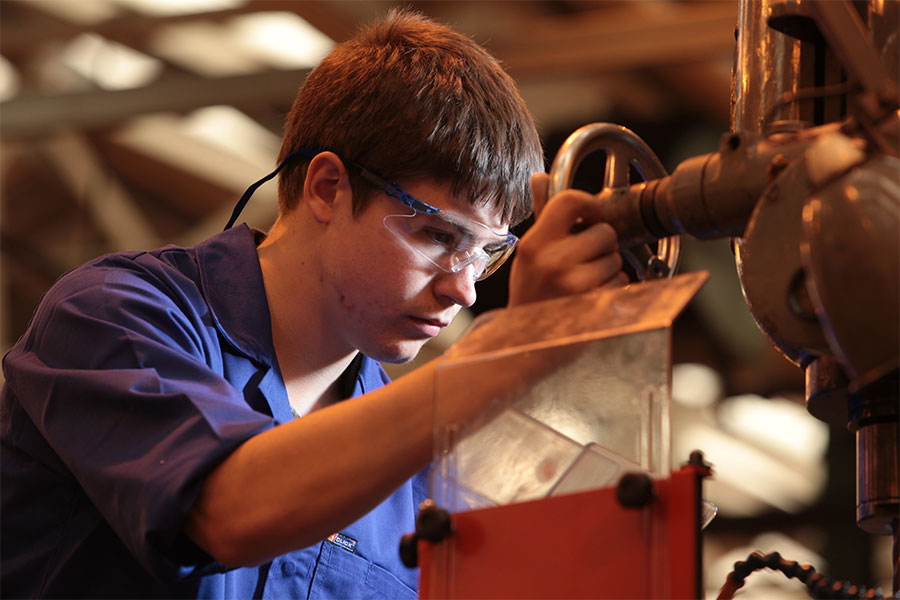
T Levels are an exciting new way to study at Stockport College. You’ll still study for two years and gain a certificate equivalent to three A Levels but, unlike A Levels, these courses have been developed in collaboration with businesses and employers, preparing you for the career you want with meaningful work experience.
T Levels will offer you a mixture of classroom learning and ‘on-the-job’ experience during a meaningful industry placement of at least 315 hours (approximately 45 days). These placements will provide you with the knowledge and experience you need to open the door into skilled employment, further study or a higher apprenticeship.
T Levels are set to become one of the most popular qualification choices post-GCSE, alongside:
T Levels, like apprenticeships, are designed by employers and approved by the Institute for Apprenticeships and Technical Education (the Institute). The total time you’ll spend working towards your T Level qualification is around 1,800 hours over the 2 years, with 80% spent in the classroom and 20% on your placement.
This differs from an apprenticeship, which is typically 80% on-the-job and 20% in the classroom and is more suited to you if you know what occupation you want to pursue and you’re ready to enter the workforce at age 16.
T Level courses will include the following compulsory elements:
Every T Level will include an industry placement, with your new employer focused on nurturing your talent and developing your practical and technical skills. These will last a minimum of 315 hours (approximately 45 days), but can last longer. Employers can offer industry placements as a block, day release or a mix of these, and it’s also possible to share part of the placement with another employer.
When you complete your T Level, you’ll receive an overall grade of pass, merit, distinction or distinction*. You’ll also get a nationally recognised certificate, which will show your overall grade and a breakdown of what you’ve achieved.
The T Level certificate will include:
It will also include confirmation that you’ve:
Your overall T Level grade will be worked out from the grades you achieved on the core component and the occupational specialism(s).
If you don’t pass all elements of your T Level, you’ll get a T Level statement of achievement which will show the elements you have completed.
T Levels will provide you with various progression options. These include skilled employment, apprenticeships and higher education.
To help you to get into higher education, UCAS tariff points will be allocated to T Levels.
UCAS points will only be allocated to the overall T Level grade. You must achieve at least an overall pass grade to receive UCAS points.